6 controversial foods—and what to know about them
Is a gluten-free diet really healthier for? Can processed meat contribute to cancer?
Updated on June 9, 2022
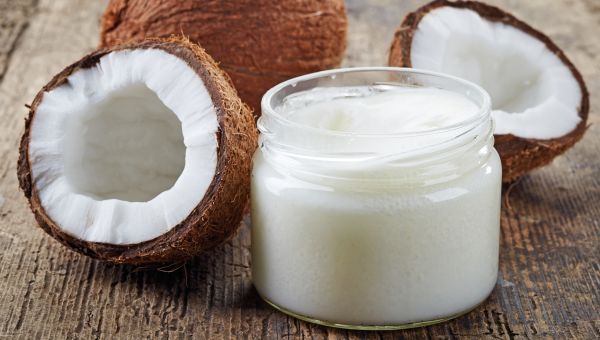
If you follow nutrition news, it seems like there’s a new food trend blaring across headlines each week. To add to the confusion, sometimes the same superfood lands on the must-eat and must-avoid lists at the same time. You’d be forgiven for questioning the foods and ingredients in your own pantry and fridge.
Does soy really increase breast cancer risk? Is going gluten-… Show More
If you follow nutrition news, it seems like there’s a new food trend blaring across headlines each week. To add to the confusion, sometimes the same superfood lands on the must-eat and must-avoid lists at the same time. You’d be forgiven for questioning the foods and ingredients in your own pantry and fridge.
Does soy really increase breast cancer risk? Is going gluten-free worth doing if you don’t have celiac disease? Can coconut oil help you lose weight—or is it loaded with calories and unhealthy fats? Here are six of the most debated foods and what the research says about them.
Show Less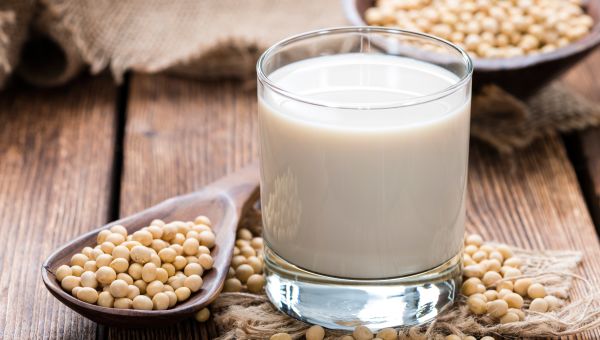
Soy
The claims: Eating soy products like soy milk, tofu, edamame, sprouts, and soy nuts might contribute to breast cancer.
The facts: Soy contains all-natural plant chemicals called isoflavones that regulate cell growth. In some studies in rats, a high amount of isoflavones resulted in an… Show More
The claims: Eating soy products like soy milk, tofu, edamame, sprouts, and soy nuts might contribute to breast cancer.
The facts: Soy contains all-natural plant chemicals called isoflavones that regulate cell growth. In some studies in rats, a high amount of isoflavones resulted in an increased breast cancer risk. One theory is that the isoflavones in soy act like estrogen in the body, and increased estrogen may contribute to certain breast cancers.
But the fact is, humans process soy differently than animals. In fact, the American Cancer Society states that there aren’t enough studies to show that soy can increase cancer risk. Some human studies suggest whole soy might even decrease the risk of breast cancer, especially in premenopausal women. Whole soy foods like soy nuts and tempeh are also packed with healthy protein and fiber.
Which soy foods should you watch out for? Powders and supplements that contain “soy protein.” These foods are typically stripped of nutrients like fiber. High levels of these isolated soy products may increase a postmenopausal woman’s risk of certain types of breast cancer that are fueled by estrogen.
When choosing milk, look for whole-bean soy milk and make sure there aren’t any added sugars. And when preparing meals, always stick with whole, all-natural soy products like tofu, tempeh, edamame, and miso, rather than processed ones. One to two daily servings of all-natural soy products are a healthy addition to your diet. (One serving is half a cup of tofu or one cup of soy milk.)
Show Less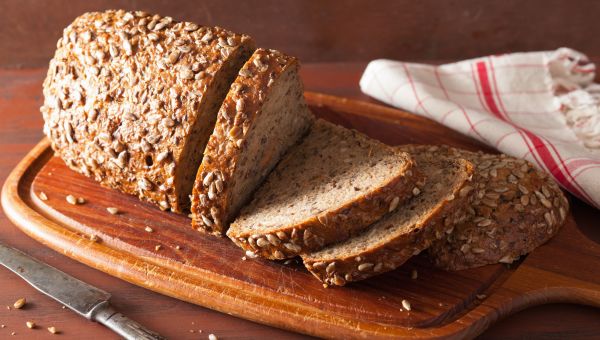
Wheat Gluten
The claims: A gluten-free diet is healthy for everyone, whether you have a gluten intolerance or celiac disease, or not.
The facts: Gluten is a protein found in wheat, rye, and barley. It can have negative effects on people with an intolerance or those who have celiac disease, an… Show More
The claims: A gluten-free diet is healthy for everyone, whether you have a gluten intolerance or celiac disease, or not.
The facts: Gluten is a protein found in wheat, rye, and barley. It can have negative effects on people with an intolerance or those who have celiac disease, an autoimmune condition that causes the small intestine to become damaged. When people with an intolerance eat gluten, they can experience symptoms like diarrhea, abdominal pain, gas, fatigue, itchy skin, and mood changes. People with celiac disease should avoid gluten because the immune system will start attacking the small intestine if they eat it.
Other people who don’t have these conditions might experiment with a gluten-free diet to try to lose weight, but if you don’t have celiac disease or a gluten intolerance, be careful before you jump on the gluten-free bandwagon. Whole grains have many key nutrients like fiber, B vitamins, magnesium, and iron. They may also reduce your risk of heart disease, relieve constipation, and actually help with weight management.
Most adults should consume between 6 to 8 ounces of grains (mostly whole grains) a day. And if you think you have celiac disease or a gluten intolerance, see a healthcare provider (HCP) before adopting a gluten-free diet.
Show Less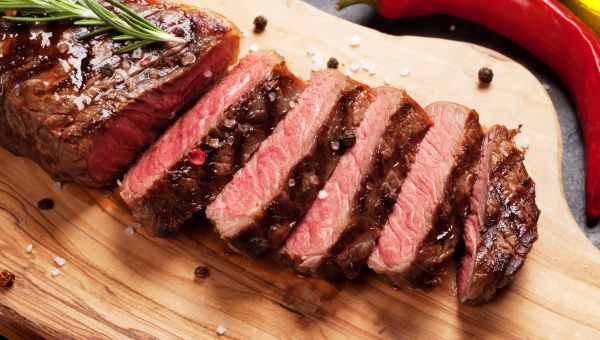
Red and Processed Meat
The claims: Red and processed meats cause cancer.
The facts: According to the World Health Organization, eating processed meats like hot dogs and bacon and red meats like steak and ground beef may increase your risk of colorectal cancer, and potentially pancreatic, prostate, and… Show More
The claims: Red and processed meats cause cancer.
The facts: According to the World Health Organization, eating processed meats like hot dogs and bacon and red meats like steak and ground beef may increase your risk of colorectal cancer, and potentially pancreatic, prostate, and stomach cancers, as well.
Studies show that people who eat more than 100 grams of red meat per day—a steak about the size of a deck of cards—may be increasing their colorectal cancer risk by 17 percent. People who eat more than 50 grams of processed meat each day—or about two pieces of bacon—may be increasing their colorectal cancer risk by 18 percent.
Red meat includes beef, pork, lamb, mutton, horse, goat, and veal. Processed meats are meats that have been preserved or gone through flavoring processes like salting, curing, fermentation, and smoking.
The best thing you can do is limit the amount of red and processed meats you eat. Aim for no more than 18 ounces of red meat per week, and nix processed meats completely, says the American Institute for Cancer Research. Try lean or plant-based protein options like fish, chicken, and tofu instead.
Show Less
Artificial Sweeteners
The claims: Substituting artificial sweeteners like aspartame, neotame, saccharin, and sucralose for sugar will help you lose weight.
The facts: While artificial sweeteners have been tested and approved for consumption, they may not always be the healthiest option.
It’s hard to say… Show More
The claims: Substituting artificial sweeteners like aspartame, neotame, saccharin, and sucralose for sugar will help you lose weight.
The facts: While artificial sweeteners have been tested and approved for consumption, they may not always be the healthiest option.
It’s hard to say whether artificial sweeteners help with weight loss, because the research has been inconclusive. It’s possible they may cause you to eat more, in fact. Studies show that sugar substitutes may condition you to crave sweet foods. You may also think you saved lots of calories by using artificial sweeteners, so you’ll be tempted to eat more later.
Studies also show that there is a relationship between certain artificial sweeteners and risk of cancer. In one large study of 102,865 French adults published in 2022 in PLoS Medicine, artificial sweeteners (especially aspartame and acesulfame-K) were associated with increased overall cancer risk. Another study published in 2020 in Journal of Clinical Medicine Research suggested that use of artificial sweeteners may increase the risk of thyroid cancer.
The bottom line? It’s okay to reach for a real sweet treat every once and a while, but opt for foods with natural sugars like fruits and berries as much as possible.
Show Less
MSG
The claims: Monosodium glutamate (MSG)—a flavor enhancer sometimes added to Chinese food, canned vegetables, soups, and processed meats—causes headaches, dry mouth, and flushing. Some also believe MSG triggers asthma symptoms and can make migraines worse.
The facts: The U.S.… Show More
The claims: Monosodium glutamate (MSG)—a flavor enhancer sometimes added to Chinese food, canned vegetables, soups, and processed meats—causes headaches, dry mouth, and flushing. Some also believe MSG triggers asthma symptoms and can make migraines worse.
The facts: The U.S. Food and Drug Administration (FDA) deems MSG safe for consumption. But the FDA also requires all products that contain added MSG to be labeled to keep manufactures from hiding it under other names like “spices.”
Many studies have sought to link MSG to symptoms like sweating, headaches, numbness, chest pain, nausea, weakness, and more. Thus far, there’s not enough evidence to say the food additive is to blame. Some experts, however, say that a small percentage of people do seem to have mild reactions to MSG, but the reactions will go away on their own.
If you notice any of these symptoms after eating MSG-packed foods, the best thing to do is avoid those foods altogether.
Show Less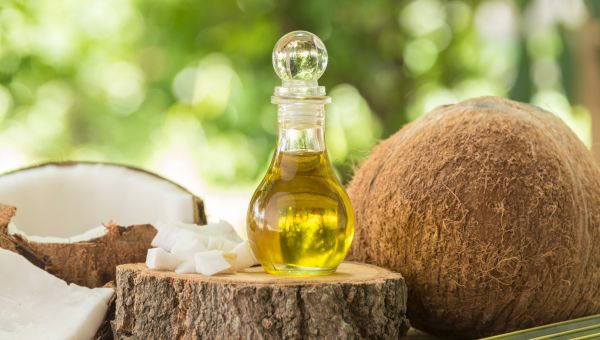
Coconut oil
The claims: Many people believe coconut oil can help digestion, boost the immune system, keep your skin healthy, help you lose weight, and may even keep your teeth and gums healthy.
The facts: Coconut oil is actually loaded with saturated fat (between 80 and 90 percent) and eating a lot… Show More
The claims: Many people believe coconut oil can help digestion, boost the immune system, keep your skin healthy, help you lose weight, and may even keep your teeth and gums healthy.
The facts: Coconut oil is actually loaded with saturated fat (between 80 and 90 percent) and eating a lot of saturated fat can increase levels of LDL (aka “bad” cholesterol) in the blood. High LDL can increase the risk of clogged arteries, heart attack, and stroke. In fact, the American Heart Association (AHA) says consuming coconut oil may raise LDL levels just as much as saturated fat from butter or beef.
Some diets recommend coconut oil as a healthy type of saturated fat. The AHA and most health experts disagree. The AHA has concluded that replacing saturated fat found in foods like coconut oil and butter with oils containing monounsaturated fats—like olive oil, safflower oil, and canola oil—can lower the risk of cardiovascular disease by about 30 percent.
When it comes to your oral health and coconut oil, the American Dental Association does not recommend a practice called oil pulling, which involves swishing coconut oil around in your mouth as a replacement or supplement for standard oral hygiene routines like brushing and flossing. To keep your teeth and gums healthy, you should brush your teeth twice a day with a fluoride toothpaste and floss once a day.
As for your skin, if you’re prone to acne, products with coconut oil can encourage breakouts. It can, however, be a good skin and hair moisturizer for those who don’t experience any irritation from it.
Show Less
Stacy Simon. Soy and Cancer Risk: Our Expert’s Advice. American Cancer Society. April 29, 2019.
Wei Y, Lv J, Guo Y, et al. Soy intake and breast cancer risk: a prospective study of 300,000 Chinese women and a dose-response meta-analysis. Eur J Epidemiol. 2020 Jun;35(6):567-578.
Fan Y, Wang M, Li Z, et al. Intake of Soy, Soy Isoflavones and Soy Protein and Risk of Cancer Incidence and Mortality. Front Nutr. 2022 Mar 4;9:847421.
Harvard T.H. Chan School of Public Health. Straight Talk about Soy. Accessed May 27, 2022.
Diez-Sampedro A, Olenick M, Maltseva T, Flowers M. A Gluten-Free Diet, Not an Appropriate Choice without a Medical Diagnosis. J Nutr Metab. 2019;2019:2438934. Published 2019 Jul 1.
World Health Organization. Cancer: Carcinogenicity of the consumption of red meat and processed meat. 2015.
American Institute for Cancer Research. Limit Consumption of Red and Processed Meat. Accessed June 9, 2022.
Holly Strawbridge. Artificial sweeteners: sugar-free, but at what cost? Harvard Health Publishing. January 29, 2020.
Debras C, Chazelas E, Srour B, et al. Artificial sweeteners and cancer risk: Results from the NutriNet-Santé population-based cohort study. PLoS Med. 2022 Mar 24;19(3):e1003950.
Singh N, Singh Lubana S, Arora S, Sachmechi I. A Study of Artificial Sweeteners and Thyroid Cancer Risk. J Clin Med Res. 2020 Aug;12(8):492-498.
U.S. Food and Drug Administration. Questions and Answers on Monosodium glutamate (MSG). Content current as of: January 4, 2018.
Harvard T.H. Chan School of Public Health. Coconut Oil. Accessed June 9, 2022.
American Heart Association. Advisory: Replacing saturated fat with healthier fat could lower cardiovascular risks. Published: June 15, 2017.
American Dental Association. Mouth Healthy. Oil pulling. 2018.
More On


video

article

slideshow


video


video
